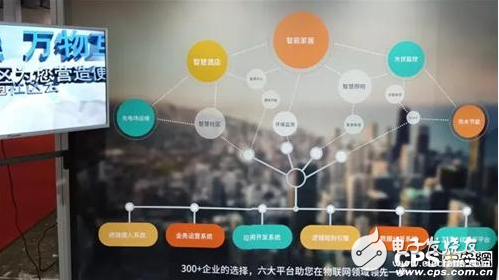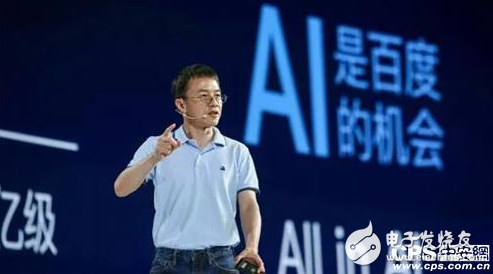Under the influence of multiple factors such as technological progress and consumption upgrades, the smart home industry is driving a new wave of consumption upgrades. If companies can inject artificial intelligence and interconnection technologies into traditional household products and create products that better meet the needs of residents, they may create a new blue ocean of business.
Amazon invested about 1 billion U.S. dollars to acquire American smart doorbell company Ring

Recently, Amazon invested about 1 billion US dollars to acquire the American smart doorbell company Ring. This is a new effort made by Amazon to improve the security of parcel delivery, and it is also an important layout for the company to enter the smart home industry. Ring’s core technology is to connect the doorbell with a camera to the head of the household’s mobile phone or tablet, allowing the head of the household to conduct remote visual conversations with visitors or couriers and monitor the safety of the house.
Amazon's acquisition of Ring is a microcosm of the technology giant's foray into the smart home field. In recent years, Google, Apple, Microsoft, and Samsung have all stepped up their deployment in the smart home industry. For example, Google launched Google Home, a smart home control device with voice interaction function, Apple released the smart speaker HomePod, Microsoft developed the smart thermostat GLAS that can automatically detect the air quality in the room, and Samsung launched smart TVs, smart washing machines, smart Refrigerators, smart lights and other products.
Hengtong Layout Smart Home: An Important Jigsaw for Building a Smart Basic Network

It was reported on the 29th that China Mobile, China Telecom, and China Unicom jointly participated in the Beijing Construction Expo. Hengtong is positioned as an integrated service provider for the entire value chain of the communications industry, and continues to expand the upstream and downstream industries and application ecology along the optical communication network products. It has already deeply deployed the smart home industry. This time, it will bring its "Hengtong Cloud" series products and smart home solutions to Beijing Construction Expo.
Hengtong exhibited the Hengtong Cloud series of products, including smart home gateways, smart door locks and various smart sensors. Not only "single products", but also aimed at the "entrance" of smart homes. The second is the big data service cloud platform, which locates the underlying information infrastructure that carries the smart home business. In addition, the Hengtong booth also exhibited the industry-wide smart life solutions jointly launched with Yunzhiwu, which realized the full category coverage of smart homes, as well as voice interaction and contextual experience. Based on the above-mentioned layout, Hengtong has become a smart home integrator, and it fits perfectly with operators' efforts in smart homes.
In an interview with the media, Li Jian, director of the Hengtong Smart Community Division, emphasized that the home smart gateway products are independently developed by Hengtong and promote the ecological construction as an integrator. Partner products are introduced to reflect the application scenarios of smart networks and smart gateways. .
Hengtong's layout in smart homes has a long history. In recent years, taking "Internet+" as an opportunity, Hengtong has continued to explore the broadband network industry ecosystem, not only providing leading optical communication products, but also participating in operators' infrastructure operations more deeply, and has won multiple broadband access business licenses; In the field of smart cities, Hengtong also teamed up with 21Vianet to establish Hengtong Optical Carrier Co., Ltd., with the goal of building a smart basic network in the future. Therefore, it can be said that Hengtong's layout in the field of smart home is precisely based on its own industrial advantages and the expansion of information industry services.
Foxconn subsidiary acquires Belkin: want to develop smart home business
It was reported on the 6th that Apple’s supplier Taiwan Foxconn Hong Kong branch FIT Hon Teng issued a statement on the 27th local time that it would acquire Belkin, a well-known Apple accessory manufacturer, for US$886 million (approximately RMB 5.56 billion).
According to reports, FIT plans to develop smart home business with Belkin, and will cooperate with Homekit and other smart home companies, such as Amazon's voice assistant Alexa and Google Home. After the acquisition, FIT will exercise ownership of all approximately 700 patents of Belkin.
Belkin is a well-known supplier of Apple accessories, providing accessories including casings, screensavers, software protectors and lightning protection systems for Apple's mobile phones, tablets, and laptops. The company also recently announced that it will provide new wireless chargers for Apple's iPhone 8 and 8Plus phones and iPhone X phones.
Baidu accelerates its layout, can it seize the trillions of smart home outlets?

As the first domestic Internet giant to transform to artificial intelligence, Baidu promotes AI technology to be ahead of other domestic competitors, especially under the leadership of Wu Enda that year, attracting a large number of AI talents. Today, the size of this AI corps is as high as 2,000 people, making it possible Compete with international giants such as Google and Microsoft in the field of artificial intelligence.
Today, Baidu has adjusted its original smart home strategy again, integrating the Du Mi Division and the Smart Home Hardware Division into a smart life business group, with Lu Qi in charge as the general manager of the division. The newly established Smart Life Division is continuously expanding its circle of friends around the ecological cooperation of smart life. The first stop was the AWE held in Shanghai. Lu Qi and Baidu Cloud General Manager Yin Shiming and Du Mi Division General Manager Jing Jing Kun came to the Haier Smart Home Strategy Conference and successfully joined hands with the traditional home appliance giant Haier, and the two sides built a smart home ecosystem around IoT+AI.
Currently in the US market, the top three types of smart home products with the highest sales volume are webcams, smart speakers and smart doorbells. Cameras and doorbells are mainly used for security functions, which are used to remotely control residential security. Smart speakers with human-computer interactive dialogue capabilities are mainly used for entertainment, and some products also have the function of an intelligent control center.
It can be seen that the products currently consumed by users are mainly small smart single products, but the future direction of smart homes is likely to be the overall intelligence of household appliances in the house: including residential security systems that can be remotely monitored, namely smart doorbells and smart doors Locks; smart air-conditioning and air purification systems that can be started remotely; entertainment audio and lighting systems with human-computer interaction and voice control; kitchens and household cleaning systems that help people get rid of the burden of housework. For smart homes to truly achieve the above goals and realize systematic and integrated smart solutions, further scientific and technological investment is needed.
Chinese companies started late in the smart home industry, but their development prospects are promising. On the one hand, China has built a wide-ranging Internet infrastructure, and a number of high-tech companies have accumulated high technology in the fields of artificial intelligence, speech recognition, and Internet of Things technology; on the other hand, China’s traditional home appliance manufacturing capabilities are very strong. . More importantly, the spending power of Chinese residents continues to rise, providing a broad market for the smart home industry. According to forecasts from Analysys think tank, China's smart home market is expected to reach 180 billion yuan in 2018. At present, technology companies such as Xiaomi, Tencent, and Alibaba, as well as traditional home appliance companies such as Haier, Midea, and Gree, are actively deploying the smart home market.
Interchangeable Power Adapter,5W Interchangeable Power Adapter,20W Interchangeable Power Adapter,Interchangeable Power Adaptor Adapter
Guangdong Mingxin Power Technologies Co.,Ltd. , https://www.mxpowersupply.com